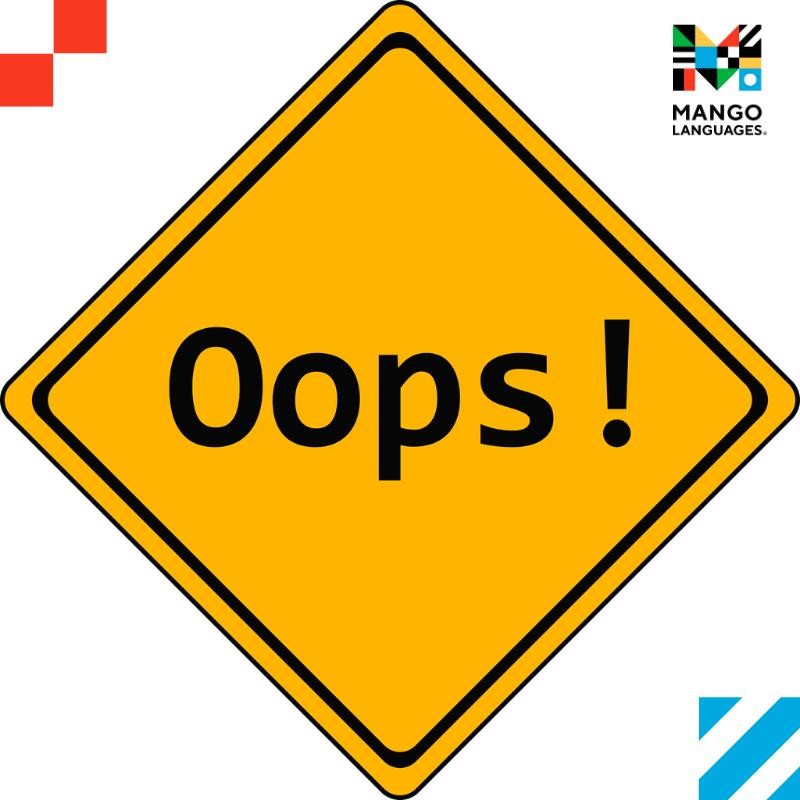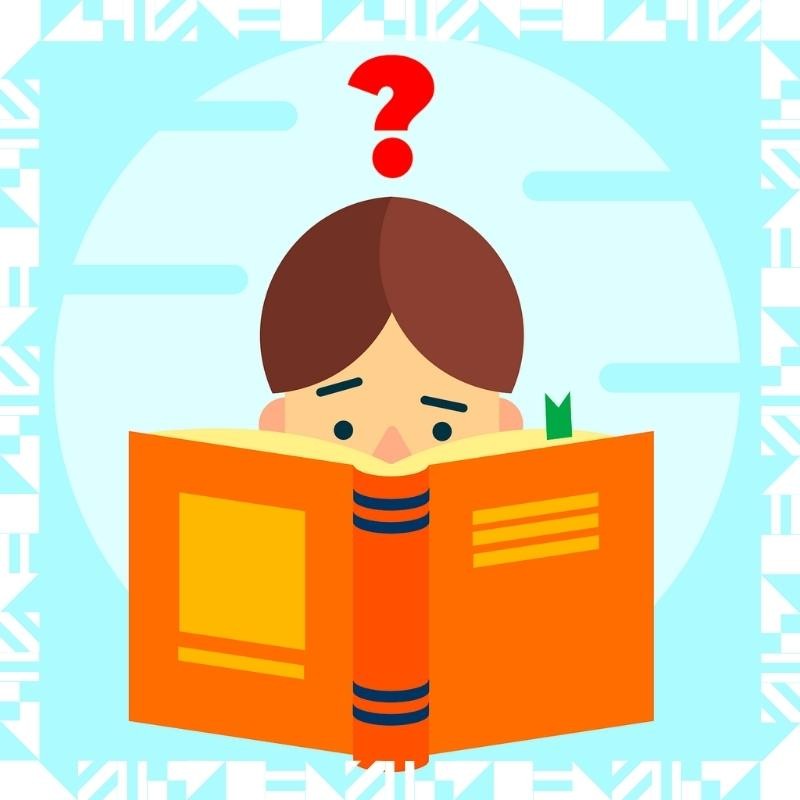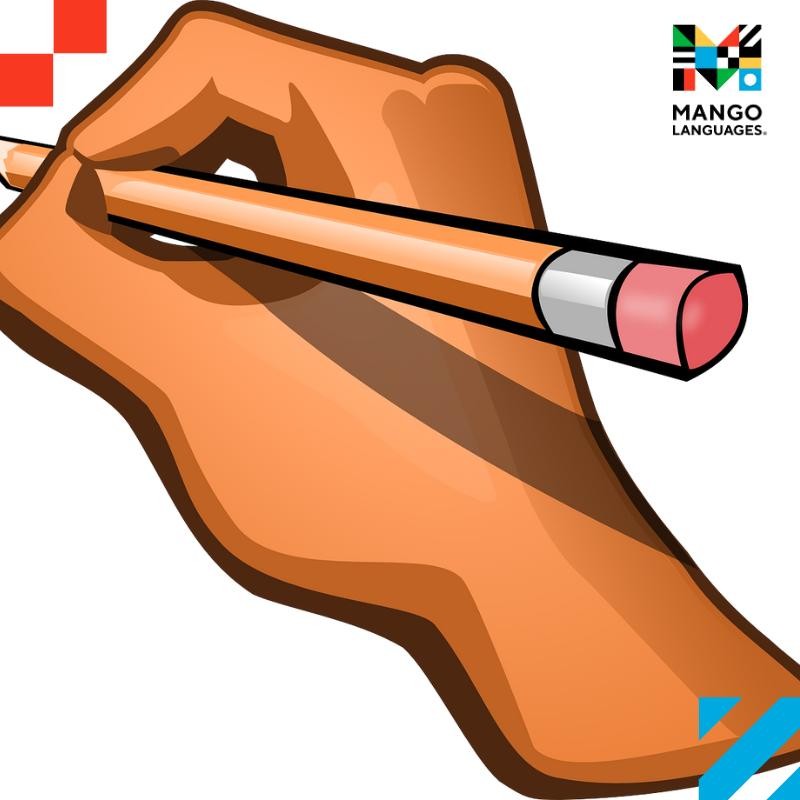Learning a new language can be an enriching experience, but it requires a strategic approach. Discover proven methods and valuable insights on How To Learn New Language Effectively at LEARNS.EDU.VN. We provide the resources and techniques you need to master any language, fostering language acquisition and enhancing your communicative competence through effective learning strategies.
1. Define Clear and Achievable Language Learning Goals
Why is setting specific objectives so crucial when embarking on a language learning journey? Setting clear goals focuses your efforts and provides a roadmap to success.
Having definite goals in mind is crucial for learning a language effectively. Setting specific, measurable, achievable, relevant, and time-bound (SMART) goals helps clarify what you need to work on and where to begin. According to research highlighted in “Relevance of goal theories to language learning research” by Lee, M., & Bong, M. (2019), setting goals based on your motivation substantially impacts success. Instead of vague aspirations, define tangible objectives.
Examples of SMART Goals:
- Beginner: “I will learn 5 new words every day for the next month.”
- Intermediate: “I will be able to hold a 10-minute conversation on travel by the end of three months.”
- Advanced: “I will read one novel in the target language within six months.”
By focusing on these specific goals, you can maintain motivation and track your progress effectively. LEARNS.EDU.VN offers tools and resources to help you set and achieve your language learning goals, including goal-setting templates and progress trackers.
2. Immerse Yourself Actively in the Language Environment
How does surrounding yourself with the target language boost your learning? Immersion creates a natural, engaging environment that accelerates language acquisition.
Immersing yourself in the experience is a highly effective strategy. Instead of solely relying on textbooks, integrate the language into your daily life. Watch TV shows, listen to podcasts, read articles, and even try cooking recipes in the target language. According to Ullman, M. T., & Lovelett, J. T. (2018) in “Implications of the declarative/procedural model for improving second language learning,” immersion can lead to more fluent and automatic language skills.
Practical Immersion Techniques:
- Media Consumption: Watch movies and TV shows without subtitles, gradually increasing the complexity.
- Audio Engagement: Listen to podcasts, music, and audiobooks during commutes or workouts.
- Reading Practice: Start with simple books and articles, and gradually increase the difficulty.
- Daily Activities: Label items around your house in the target language to reinforce vocabulary.
LEARNS.EDU.VN offers a wide range of immersive content, including interactive videos, audio lessons, and cultural insights to enhance your learning experience.
3. Practice Consistent and Regular Listening
Why is regular listening practice essential for language acquisition? Consistent exposure to the language helps improve comprehension, pronunciation, and overall fluency.
Listening to your new language regularly is vital for improving proficiency. This regular exposure provides input – the language we absorb through hearing. As Krashen, S. (1982) explains in “Principles and practice in second language acquisition,” languages are best learned when exposed to comprehensible input.
Tips for Effective Listening:
- Comprehensible Input: Choose materials that you mostly understand but still introduce new vocabulary and grammar.
- Active Listening: Take notes on new words and phrases, and try to use them in your own sentences.
- Diverse Sources: Listen to various materials, such as news broadcasts, interviews, and casual conversations.
LEARNS.EDU.VN provides listening materials tailored to different proficiency levels, ensuring you receive input that is both challenging and comprehensible.
4. Use Spaced Repetition for Vocabulary Mastery
How does spaced repetition improve vocabulary retention? This technique optimizes learning by scheduling reviews at increasing intervals.
Spaced repetition is a highly effective strategy for enhancing vocabulary skills. It involves reviewing new words at increasing intervals, which helps transfer information from short-term to long-term memory. Research supports that spacing out study sessions yields better retention compared to cramming.
Implementing Spaced Repetition:
- Flashcards: Use physical or digital flashcards to review new words.
- Spaced Repetition Systems (SRS): Utilize apps like Anki or Memrise that automatically schedule reviews.
- Consistent Review: Regularly review vocabulary, gradually increasing the time between reviews.
LEARNS.EDU.VN incorporates spaced repetition algorithms in its vocabulary learning tools, ensuring you retain new words effectively.
5. Cultivate the Habit of Thinking in the New Language
Why is thinking in the target language a critical step towards fluency? It helps internalize the language’s structure and nuances, moving beyond mere translation.
Thinking in the language you’re learning is an effective way to build fluency. A common pitfall for language learners is to translate from their first language. Language learning involves more than translation, and many concepts and phrases can’t be directly translated.
Strategies for Thinking in the Target Language:
- Daily Reflections: Try to think about your daily activities and experiences in the target language.
- Self-Talk: Narrate your actions and thoughts in the new language.
- Language Immersion: Fully immerse yourself in environments where you need to think and respond in the target language.
LEARNS.EDU.VN provides exercises and prompts to help you start thinking in the new language, fostering a more intuitive understanding.
6. Embrace and Learn From Mistakes
Why are mistakes valuable in language learning? They provide essential feedback and opportunities for correction and improvement.
One of the best ways to learn a new language is to make mistakes. Mistakes provide great opportunities to learn, once they are corrected. Corrective feedback is a form of input your brain can use to help you avoid making the mistake a second time.
Effective Ways to Handle Mistakes:
- Acceptance: Recognize that mistakes are a natural part of the learning process.
- Analysis: Understand why you made the mistake and how to correct it.
- Feedback: Seek feedback from native speakers or language partners.
LEARNS.EDU.VN offers a supportive environment where you can make mistakes and receive constructive feedback, accelerating your learning.
7. Maximize Language Input Through Extensive Reading
How does reading in the target language accelerate learning? It exposes you to new vocabulary, grammar, and idiomatic expressions in context.
Reading as much as you can in your foreign language is a key strategy. Reading provides input, which our brains use to learn. Input is essential for picking up on new vocabulary and grammatical structures.
Strategies for Effective Reading:
- Start Simple: Begin with materials that match your current skill level.
- Choose Interesting Content: Select topics that genuinely interest you to stay motivated.
- Use a Dictionary: Look up unfamiliar words, but try to infer meaning from context first.
LEARNS.EDU.VN offers a vast library of reading materials, from beginner stories to advanced literature, to support your language learning journey.
8. Enhance Fluency Through Regular Writing Practice
Why is writing an essential component of language learning? It reinforces grammar, vocabulary, and sentence structure, leading to better overall communication skills.
You should also write as much as you can in your target language. Writing hones your productive capabilities, meaning you get to practice producing the language yourself. You need to strengthen your productive skills to fully master the language you’re learning.
Practical Writing Exercises:
- Journaling: Write daily entries about your thoughts and experiences.
- Creative Writing: Try writing short stories or poems.
- Social Media: Post updates and comments in the target language.
LEARNS.EDU.VN provides writing prompts and feedback tools to help you improve your writing skills effectively.
9. Integrate Cultural Insights for a Deeper Understanding
How does understanding the culture enhance language learning? Cultural knowledge provides context and enriches your overall understanding of the language.
Integrating cultural insights is crucial for a deeper understanding of the language. Understanding the cultural context enriches your comprehension and communication skills.
Ways to Incorporate Cultural Insights:
| Method | Description |
|---|---|
| Cultural Immersion | Participate in cultural events, festivals, and celebrations related to the target language. |
| Culinary Arts | Learn to cook traditional dishes from the target culture, using recipes in the language. |
| Cultural Exchange | Connect with native speakers and participate in cultural exchange programs to learn firsthand about their traditions and customs. |
| Historical Study | Explore the history, art, and literature of the target culture to gain a deeper appreciation for its unique perspectives and contributions. |








LEARNS.EDU.VN offers cultural notes, videos, and articles to help you integrate cultural understanding into your language studies.
10. Optimize Your Learning with Language Exchange Partners
Why is interacting with native speakers beneficial? Language exchange partners provide real-time practice and valuable cultural insights.
Optimize your learning with language exchange partners. Interacting with native speakers provides real-time practice and valuable cultural insights.
Benefits of Language Exchange:
| Benefit | Description |
|---|---|
| Real-Time Practice | Engage in conversations to improve speaking and listening skills. |
| Cultural Insights | Gain firsthand knowledge of cultural nuances and idiomatic expressions. |
| Personalized Feedback | Receive personalized feedback on your pronunciation and grammar. |
| Increased Motivation | Stay motivated by connecting with others who share your interest in language learning. |
LEARNS.EDU.VN connects you with native speakers for language exchange, enhancing your learning experience.
11. Embrace Technology to Enhance Your Learning Process
How can technology transform language learning? Digital tools offer interactive lessons, personalized feedback, and access to a vast array of resources.
Embrace technology to enhance your learning process. Digital tools offer interactive lessons, personalized feedback, and access to a vast array of resources.
Technological Tools for Language Learning:
| Tool | Description |
|---|---|
| Language Learning Apps | Use apps like Duolingo, Babbel, or Rosetta Stone for structured lessons and interactive exercises. |
| Online Dictionaries | Utilize online dictionaries and translation tools for quick access to definitions and translations. |
| Language Exchange Platforms | Connect with native speakers for language practice and cultural exchange through platforms like HelloTalk. |
| Virtual Reality (VR) | Explore immersive language learning experiences through VR applications. |
LEARNS.EDU.VN integrates cutting-edge technology to offer interactive and personalized language learning experiences.
12. Stay Consistent and Patient Throughout Your Journey
Why are consistency and patience critical in language learning? Language acquisition is a gradual process that requires sustained effort and a positive mindset.
Stay consistent and patient throughout your journey. Language acquisition is a gradual process that requires sustained effort and a positive mindset.
Tips for Maintaining Consistency and Patience:
- Establish a Routine: Set aside dedicated time each day for language learning activities.
- Track Your Progress: Monitor your achievements and milestones to stay motivated.
- Celebrate Small Wins: Acknowledge and celebrate your progress to reinforce positive habits.
- Cultivate a Positive Mindset: Approach challenges with optimism and view mistakes as learning opportunities.
LEARNS.EDU.VN provides resources and support to help you stay consistent and patient on your language learning journey.
13. Tailor Your Learning to Match Your Unique Style
How does personalized learning enhance effectiveness? Customizing your approach to match your preferences and strengths can significantly boost your progress.
Tailor your learning to match your unique style. Customizing your approach to match your preferences and strengths can significantly boost your progress.
Strategies for Personalized Learning:
| Strategy | Description |
|---|---|
| Identify Your Strengths | Determine your preferred learning styles, such as visual, auditory, or kinesthetic, and focus on activities that align with your strengths. |
| Set Realistic Goals | Establish achievable goals based on your individual capabilities and time constraints. |
| Choose Relevant Topics | Select learning materials that align with your interests and passions to stay motivated. |
| Seek Feedback | Request feedback from instructors or language partners to identify areas for improvement and refine your approach. |
LEARNS.EDU.VN offers personalized learning paths and resources to help you tailor your learning experience to your unique style.
14. Review Grammar Rules and Structures
Why is grammar essential for language proficiency? Understanding grammar provides the framework for constructing meaningful sentences and communicating effectively.
Review grammar rules and structures. Understanding grammar provides the framework for constructing meaningful sentences and communicating effectively.
Strategies for Studying Grammar:
| Strategy | Description |
|---|---|
| Grammar Textbooks | Use grammar textbooks and workbooks to study grammar rules and complete exercises. |
| Online Grammar Resources | Utilize online grammar resources, websites, and tutorials to supplement your learning. |
| Grammar Apps | Use grammar apps to practice grammar rules and receive immediate feedback. |
| Writing and Speaking Practice | Apply grammar rules in writing and speaking exercises to reinforce your understanding. |
LEARNS.EDU.VN offers grammar lessons, exercises, and resources to help you master the fundamental structures of the language.
15. Expand Vocabulary Through Active Recall
How does active recall improve vocabulary retention? This technique involves retrieving information from memory, strengthening neural connections and enhancing long-term retention.
Expand vocabulary through active recall. This technique involves retrieving information from memory, strengthening neural connections and enhancing long-term retention.
Strategies for Active Recall:
| Strategy | Description |
|---|---|
| Flashcards | Use flashcards to test your knowledge of vocabulary words and their meanings. |
| Quizzes | Take quizzes and tests to assess your understanding of vocabulary and identify areas for improvement. |
| Mnemonics | Use mnemonics and memory aids to help you remember vocabulary words and their meanings. |
| Contextual Learning | Learn vocabulary words in context by reading articles, watching videos, and listening to podcasts. |
LEARNS.EDU.VN provides interactive vocabulary exercises and quizzes to help you practice active recall and expand your vocabulary.
16. Join Language Learning Communities
Why are learning communities beneficial? They offer support, motivation, and opportunities for practice and collaboration.
Join language learning communities. They offer support, motivation, and opportunities for practice and collaboration.
Benefits of Joining a Language Learning Community:
| Benefit | Description |
|---|---|
| Support and Motivation | Receive encouragement and support from fellow learners to stay motivated and overcome challenges. |
| Practice Opportunities | Engage in conversations and activities to practice your language skills with others. |
| Cultural Exchange | Learn about different cultures and perspectives through interactions with learners from around the world. |
| Networking | Connect with language professionals and enthusiasts for career opportunities and collaborations. |
LEARNS.EDU.VN fosters a vibrant community where you can connect with fellow learners, share experiences, and practice your language skills.
17. Utilize Multimedia Resources for Immersive Learning
How do multimedia resources enhance language learning? They provide engaging and interactive ways to learn new vocabulary, grammar, and cultural insights.
Utilize multimedia resources for immersive learning. They provide engaging and interactive ways to learn new vocabulary, grammar, and cultural insights.
Multimedia Resources for Language Learning:
| Resource | Description |
|---|---|
| Videos | Watch videos of native speakers to improve your listening comprehension and pronunciation. |
| Podcasts | Listen to podcasts on various topics to expand your vocabulary and learn about cultural nuances. |
| Music | Listen to music in the target language to improve your pronunciation and rhythm. |
| Interactive Exercises | Engage in interactive exercises and games to practice your language skills in a fun and engaging way. |
LEARNS.EDU.VN offers a wide range of multimedia resources, including videos, podcasts, and interactive exercises, to enhance your learning experience.
18. Measure Your Progress Regularly
Why is it important to track your learning journey? Tracking progress provides valuable insights into your strengths and weaknesses, helping you adjust your learning strategy accordingly.
Measure your progress regularly. Tracking progress provides valuable insights into your strengths and weaknesses, helping you adjust your learning strategy accordingly.
Methods for Measuring Progress:
| Method | Description |
|---|---|
| Self-Assessment | Conduct self-assessments to evaluate your language skills and identify areas for improvement. |
| Practice Tests | Take practice tests and quizzes to assess your knowledge of grammar, vocabulary, and comprehension. |
| Language Proficiency Tests | Take standardized language proficiency tests to assess your overall language skills and obtain certifications. |
| Feedback from Instructors | Request feedback from instructors or language partners to receive personalized evaluations of your progress. |
LEARNS.EDU.VN provides tools and resources to help you measure your progress regularly and stay motivated on your language learning journey.
19. Prioritize Conversational Practice
Why is speaking practice essential for fluency? Regular conversation helps you internalize grammar and vocabulary, improving your ability to communicate effectively in real-world situations.
Prioritize conversational practice. Regular conversation helps you internalize grammar and vocabulary, improving your ability to communicate effectively in real-world situations.
Strategies for Conversational Practice:
| Strategy | Description |
|---|---|
| Language Exchange Partners | Connect with native speakers and language learners for conversational practice through language exchange platforms. |
| Language Tutoring | Hire a language tutor for personalized conversational practice and feedback. |
| Language Meetups | Attend language meetups and events to practice your language skills with other learners in a supportive environment. |
| Immersive Travel | Immerse yourself in the target language by traveling to countries where it is spoken and engaging in conversations with locals. |
LEARNS.EDU.VN offers conversational practice opportunities through language exchange programs and virtual meetups.
20. Seek Continuous Improvement
Why is continuous improvement important in language learning? The journey to fluency is ongoing, requiring dedication to lifelong learning and refinement of your skills.
Seek continuous improvement. The journey to fluency is ongoing, requiring dedication to lifelong learning and refinement of your skills.
Strategies for Continuous Improvement:
| Strategy | Description |
|---|---|
| Set New Goals | Set new goals and challenges to continue expanding your language skills and knowledge. |
| Stay Updated | Stay updated on current events, trends, and cultural developments in the target language to remain relevant and informed. |
| Embrace Challenges | Embrace challenging tasks and projects to push your language skills to the next level. |
| Seek Feedback | Seek feedback from native speakers, language partners, and instructors to identify areas for improvement and refine your skills. |
LEARNS.EDU.VN supports your lifelong learning journey by providing resources and opportunities for continuous improvement.
How Can You Create an Effective Language Learning Strategy?
What are the key steps to creating a personalized language learning strategy? An effective strategy involves setting clear goals, immersing yourself in the language, using spaced repetition, and practicing consistently.
Creating an effective strategy for learning a new language is an important step in the learning process. Creating your own strategy involves thinking about all the individual strategies we’ve discussed so far.
Here’s a quick 5-step plan you can try:
- Identify your motivation and set goals: Think about why you want to learn the language and what you are trying to accomplish. Make your goals small and concrete.
- Immerse yourself: Develop ways to extend your learning beyond textbooks and incorporate your new language into your daily life.
- Use spaced repetition: Keep your study sessions short, frequent, and challenging.
- Practice, practice, practice: Listen, read, write, and speak as often as possible.
- Use an app to help you out: Language learning apps are a great choice because they organize your learning for you.
LEARNS.EDU.VN provides tools and resources to help you create a personalized language learning strategy that suits your individual needs and preferences.
Leverage Apps and Platforms to Structure Your Language Learning
Are there apps and platforms to create a language learning strategy? Language learning apps can be especially helpful if you’re having trouble creating your own learning strategy. A language learning app is an online resource meant to facilitate language learning by offering study tools and language learning content.
Language learning apps can be especially helpful if you’re having trouble creating your own learning strategy. A language learning app is an online resource meant to facilitate language learning by offering study tools and language learning content.
Benefits of Using Language Learning Apps:
- Structured Learning: Follow a well-organized curriculum that covers all aspects of language learning.
- Interactive Exercises: Engage in interactive exercises and activities to reinforce your knowledge.
- Personalized Feedback: Receive personalized feedback on your pronunciation, grammar, and vocabulary.
- Progress Tracking: Monitor your progress and achievements to stay motivated.
LEARNS.EDU.VN recommends the following apps and platforms for structuring your language learning: Duolingo, Babbel, Rosetta Stone, Memrise, Anki.
Ready to enhance your language skills? Visit LEARNS.EDU.VN today!
Learning a new language is an achievable goal with the right strategies and resources. At LEARNS.EDU.VN, we provide comprehensive support to help you succeed. Our website offers detailed guides, effective learning methods, and connections to expert educators.
Ready to Transform Your Language Learning Journey?
Explore LEARNS.EDU.VN today and discover the tools and resources you need to master any language. Join our community of learners and start your journey to fluency now. For more information, contact us at 123 Education Way, Learnville, CA 90210, United States. You can also reach us via Whatsapp at +1 555-555-1212 or visit our website at LEARNS.EDU.VN.
FAQ: Mastering a New Language Effectively
1. What is the most effective way to learn a new language?
The most effective way to learn a new language involves a combination of setting clear goals, immersing yourself in the language, practicing regularly, and using effective learning strategies like spaced repetition. Consistency and a positive mindset are also crucial.
2. How long does it take to become fluent in a new language?
The time it takes to become fluent varies depending on the language, your learning style, and the amount of time you dedicate to studying. On average, it can take anywhere from 600 to 2200 hours of study to achieve fluency.
3. What are the best resources for learning a new language?
The best resources include language learning apps, online courses, textbooks, language exchange partners, and multimedia resources like videos and podcasts. learns.edu.vn offers a comprehensive collection of these resources.
4. How can I stay motivated while learning a new language?
To stay motivated, set achievable goals, track your progress, celebrate small wins, and join a language learning community for support and encouragement. Finding a language partner and exploring the culture associated with the language can also boost motivation.
5. Is it possible to learn a new language on my own?
Yes, it is possible to learn a new language on your own with the right resources and dedication. However, having a tutor or language partner can provide valuable feedback and practice opportunities.
6. What is the best way to improve my pronunciation in a new language?
To improve your pronunciation, listen to native speakers, practice speaking regularly, record yourself and compare your pronunciation to native speakers, and seek feedback from language partners or tutors.
7. How can I improve my listening comprehension in a new language?
Improve your listening comprehension by listening to a variety of materials, such as podcasts, videos, and music, and gradually increasing the difficulty. Active listening, taking notes, and looking up unfamiliar words can also help.
8. What role does grammar play in language learning?
Grammar provides the framework for constructing meaningful sentences and communicating effectively. Understanding grammar rules and structures is essential for building a strong foundation in the language.
9. How can I incorporate culture into my language learning?
Incorporate culture by exploring the history, art, literature, and customs of the target language. Watch movies, listen to music, cook traditional dishes, and engage in cultural events to gain a deeper understanding.
10. What are some common mistakes to avoid when learning a new language?
Common mistakes to avoid include relying too much on translation, neglecting pronunciation, being afraid to make mistakes, and not practicing consistently. Embracing mistakes as learning opportunities and maintaining a positive attitude are key to success.
